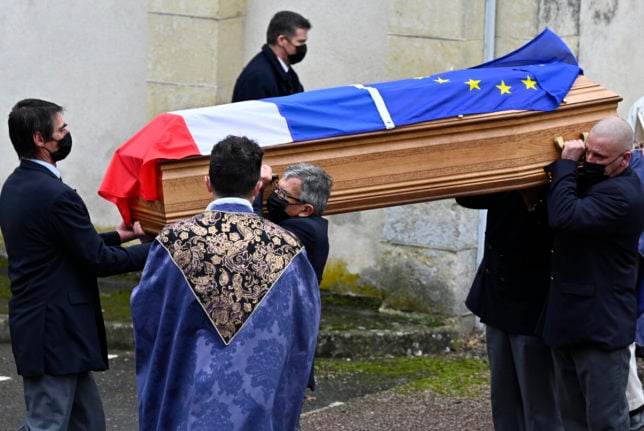It had been the wish of Giscard, who ruled France from 1974-1981 and died on Wednesday of Covid-19 aged 94, to have such a small-scale ceremony, which was attended by around 40 people.
The ceremony, in the town of Authon in the Loire region of central France where he lived, contrasted with the lavish send-off for former president Jacques Chirac when he died in 2019.
Chirac was given a lying-in-state with thousands paying respects at his coffin in Paris before a funeral ceremony at the Saint Sulpice church attended by all France's living former leaders.
That ceremony in September 2019 was also the last time Giscard was seen in public.
“The president (Giscard) wanted the funeral to take place in the strictest privacy with family,” his son Henri Giscard d'Estaing told AFP on Friday.
“It turns out that the circumstances (due to the pandemic) mean that there would have been no other choice. We will therefore only have family members and the people who live around us in Authon,” he said.
With police standing guard outside, his coffin draped in French and European flags was carried into the Saint Hilaire church in Authon, an AFP correspondent said.
France will on Wednesday observe a day of national mourning in his memory decreed by President Emmanuel Macron, with people able to write tributes in books placed in town halls.
Under Giscard, France made great strides in nuclear power, high-speed train travel and legalised abortion.
He ensured that Paris was at the heart of Europe in a post-war partnership with Germany and also played a key role in what would become the G7 group of major world powers.
But ambitions to carve out a deep place in history were derailed in 1981 when he lost a tightly contested election to his Socialist rival Francois Mitterrand, who would rule France for the next 14 years.
READ MORE: Ex-French President Valéry Giscard d'Estaing dies aged 94



 Please whitelist us to continue reading.
Please whitelist us to continue reading.
Member comments